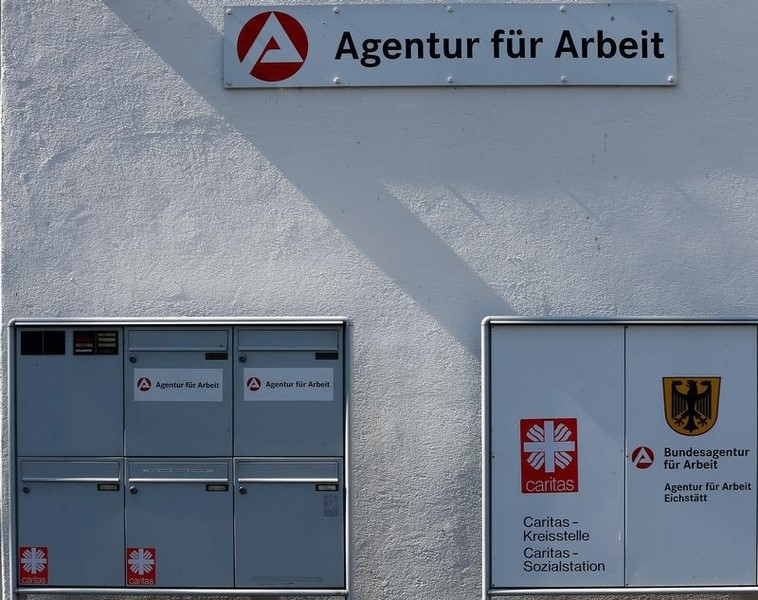By Madeline Chambers
BERLIN (Reuters) - Germany's unemployment rate touched a record low of 6.6 percent in November, underscoring the huge gap in labour market conditions between Europe's largest economy and its struggling euro zone partners.
The number of unemployed people decreased by a larger-than-expected 14,000 to 2.872 million, seasonally-adjusted data from the Federal Labour Office showed. The jobless total was the lowest in 23 years.
Record employment, rising wages and low interest rates are helping to prop up domestic demand in Germany, whose economy has suffered from uncertainty over the West's confrontation with Russia over Ukraine and weakness in some euro zone partners.
The robust labour market in Germany contrasts with the situation in many other EU countries.
According to Eurostat, which uses harmonised data that diverges from the national statistics, German unemployment stood at 5.0 percent in September, less than half the level in France and the EU average of 10.1 percent.
In Italy, the jobless rate stood at 12.6 percent in September, while in Spain it was at 24 percent, according to Eurostat.
"Germany's buoyant labour market continues to underpin wage growth and thus private consumption, in combination with very low inflation," said Christian Schultz, economist at Berenberg.
He said he expected household spending to remain a pillar of growth. A rough patch triggered by the Ukraine crisis was hitting Germany's economy exclusively through confidence and business investment, Schultz said.
"As business uncertainty fades in the absence of significant further bad news, Germany's fundamentally strong position should come through again and help boost investment," said Schultz.

Private consumption was the key driver of growth in the third quarter, when the German economy expanded by 0.1 percent. The country only just avoided a recession after contracting by 0.1 percent in the second quarter.
(Reporting by Madeline Chambers; Editing by Noah Barkin)
